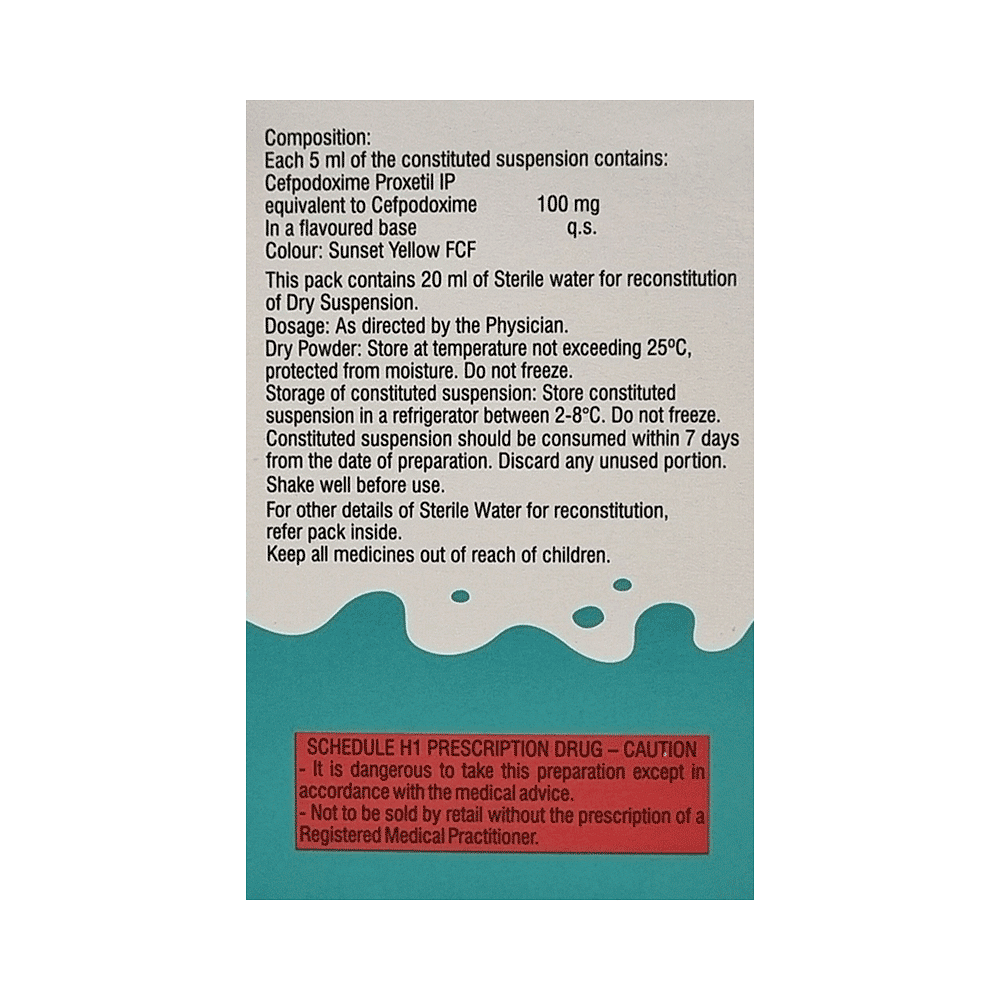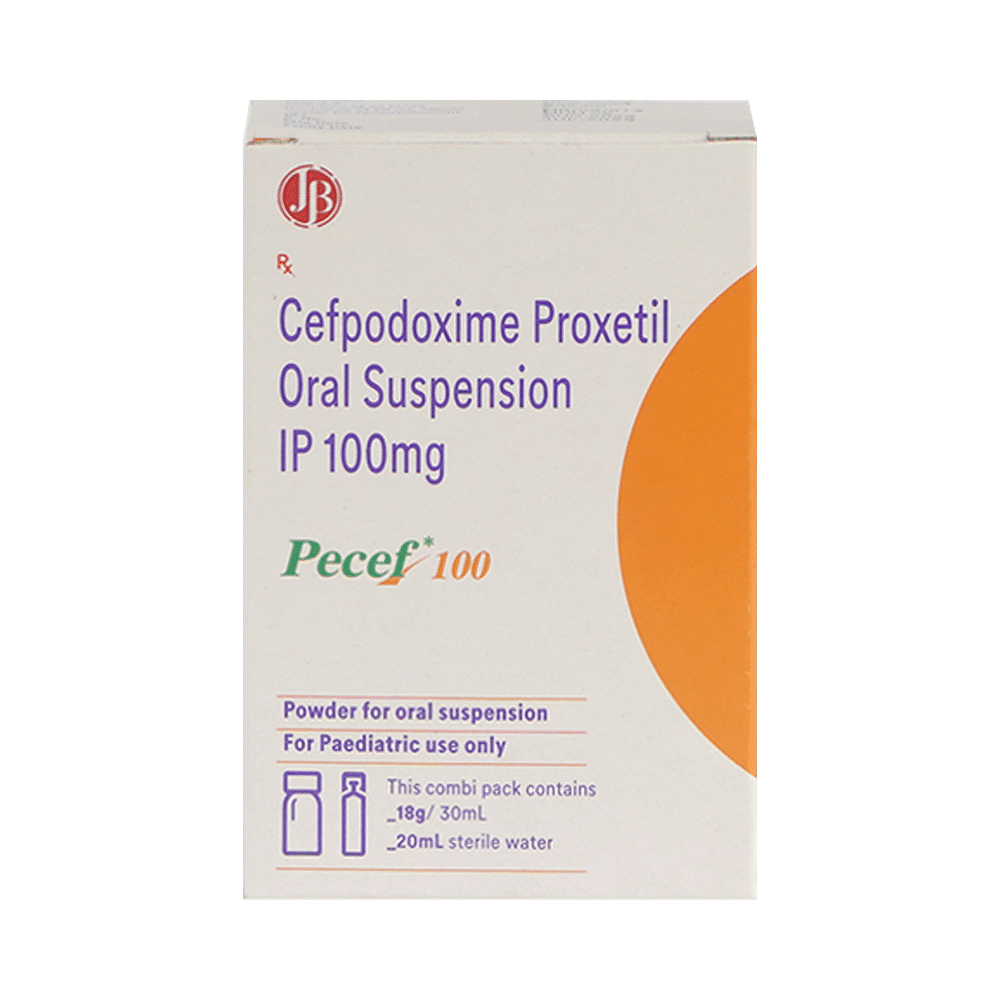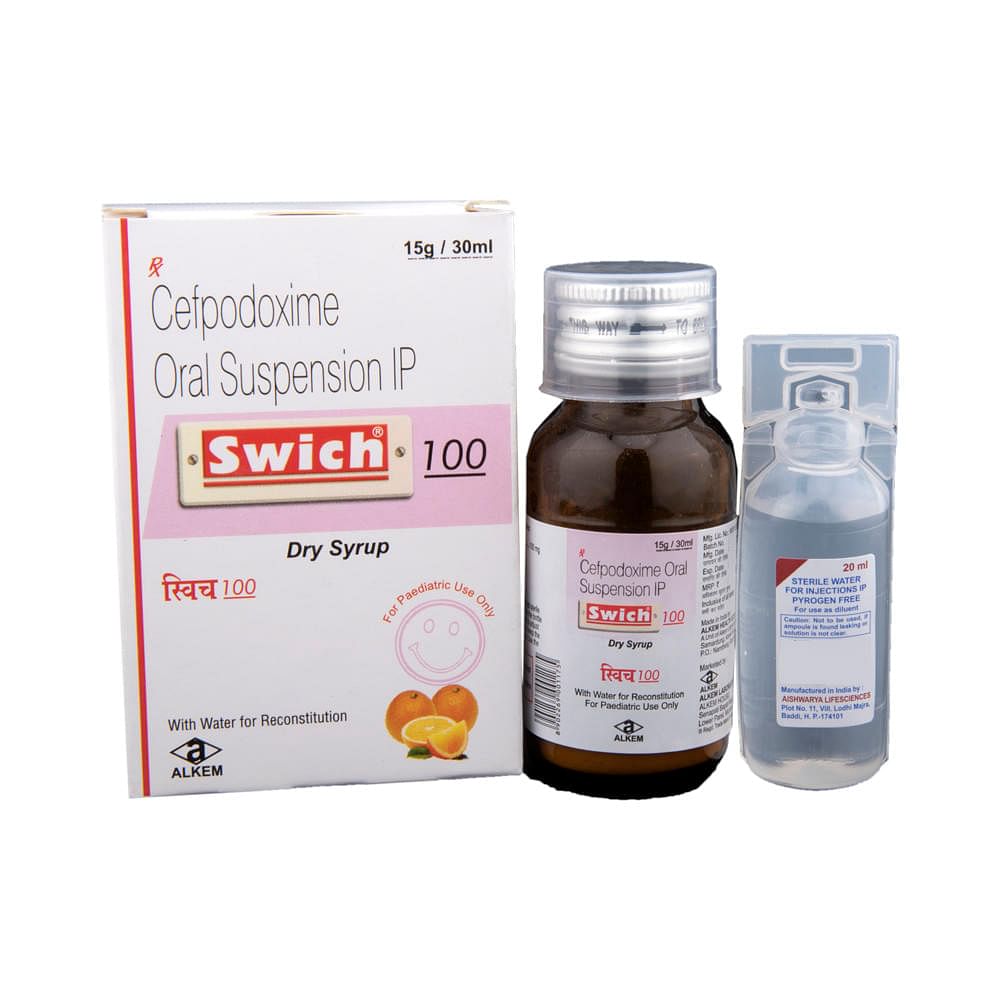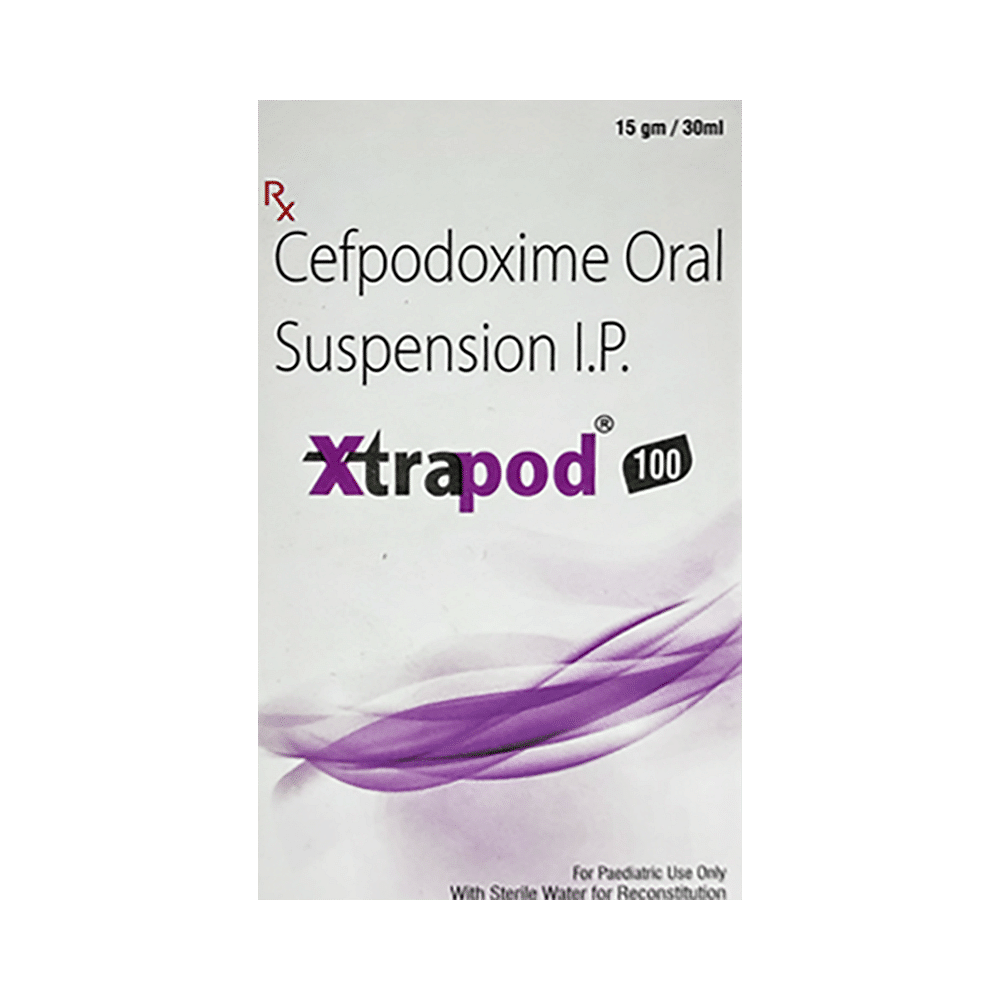
Sundoxim 100 Dry Syrup Orange
Manufacturer
Netprime Pharma Pvt Ltd
Salt Composition
Cefpodoxime Proxetil (100mg/5ml)
Key Information
Short Description
Sundoxim 100 Dry Syrup Orange is an antibiotic medicine used to treat a wide range of bacterial infections in children, including ear, eye, nose, throat, lung, skin, gastrointestinal tract, and urinary tract infections, as well as typhoid fever.
Dosage Form
Oral Suspension
Introduction
Sundoxim 100 Dry Syrup Orange is an antibiotic medicine commonly given to children for the treatment of a wide range of bacterial infections. It is effective in treating infections targeting the ears, eyes, nose, throat, lungs, skin, gastrointestinal tract, and urinary tract. It is also used to treat typhoid fever in children and adolescents.
Directions for Use
Give this medicine with food to avoid an upset stomach. Encourage your child to drink plenty of water in case diarrhea develops as a side effect.
How it works
Sundoxim 100 Dry Syrup Orange is an antibiotic that works by preventing the formation of the bacterial protective covering (cell wall) which is essential for the survival of the bacteria. This medicine stops the infection-causing bacteria from growing further and prevents the infection from spreading without making the bacteria resistant to further treatment.
Quick Tips
Your child must complete the entire course of antibiotics. Stopping too soon may cause the bacteria to multiply again or become resistant or cause another infection. Give this medicine with food to avoid an upset stomach. Encourage your child to drink plenty of water in case diarrhea develops as a side effect. Conditions like common cold and flu are caused by viruses. Never use this medicine for such conditions. Only give Sundoxim 100 Dry Syrup Orange to your child for their current infection. Never save medicine for future illnesses.
Related Medicines

Cepodem 100 Dry Suspension

Pecef 100 Powder For Oral Suspension

Swich 100 Dry Syrup

Nocsaf 100 Dry Syrup Orange

Cefiz 100mg Oral Suspension

Dalwopod 100 Dry Syrup

Podxetil 100 Oral Suspension Orange

Verpod 100 Dry Syrup

Dopox 100 Dry Syrup

Xtrapod 100 Oral Suspension
Frequently asked questions
What if I give too much of Sundoxim 100 Dry Syrup Orange by mistake?
Giving an extra dose of Sundoxim 100 Dry Syrup Orange is unlikely to cause harm. However, if you think your child may have taken too much, contact a doctor immediately. Overdosing can lead to unwanted side effects and could even worsen their condition.
Are there any possible serious side effects of Sundoxim 100 Dry Syrup Orange?
Serious side effects of this medicine include persistent vomiting, kidney damage, allergic reactions, diarrhea, and severe gastrointestinal infections. Always consult your child's doctor for help with these situations.
Can other medicines be given at the same time as Sundoxim 100 Dry Syrup Orange?
Sundoxim 100 Dry Syrup Orange may interact with other medications or substances. It's essential to discuss your child's complete medication list with their doctor before starting Sundoxim 100 Dry Syrup Orange, and always check for potential interactions with any new medicines you give.
Can I get my child vaccinated while on treatment with Sundoxim 100 Dry Syrup Orange?
Antibiotics generally don't interfere with vaccine ingredients or cause adverse reactions in children after vaccination. However, it is best to hold off on giving a vaccine until your child has recovered from the illness they are being treated for. Once your child feels better, the vaccine can be administered.
Which lab tests may my child undergo while taking Sundoxim 100 Dry Syrup Orange on a long-term basis?
Doctors may order kidney function and liver function tests periodically to monitor your child's health.
The mucus coming out of my child’s nose is yellow-green. Is it a sign of a bacterial infection?
Yellow or green mucus in the nose does not always indicate a need for antibiotics. During a common cold, mucus can thicken and change color from clear to yellow or green. Symptoms often resolve within 7 to 10 days.
My child is experiencing a sore throat and ear infection. Can I give antibiotics?
No, antibiotic treatment is not necessary for these conditions as they are typically caused by viruses. If your child has a sore throat, runny nose, barking cough, pain, and discharge from the ear, it's likely due to a virus. Consult your child’s doctor.
Does a common cold caused by viruses always result in a secondary bacterial infection? When should I start antibiotics?
In most cases, bacterial infections don't follow viral infections. Using antibiotics to treat viral infections is not advisable and may lead to side effects without providing any benefit. Antibiotics should only be used after consulting with your child’s doctor.
Can Sundoxim 100 Dry Syrup Orange impact my child's digestive system?
Many children experience digestive upset while taking antibiotics. Their good gut bacteria can also get affected during this process. It is important to note that Sundoxim 100 Dry Syrup Orange may worsen the situation by killing off both the bad and good bacteria, increasing the risk of secondary infections. If your child has diarrhea while on Sundoxim 100 Dry Syrup Orange, do not stop the medication course immediately. Instead, contact your doctor to understand how to proceed.
Can Sundoxim 100 Dry Syrup Orange lead to bacterial resistance in my child?
Yes, improper use of antibiotics, such as repeated or unnecessary usage can contribute to bacterial resistance. This means that bacteria become less affected by the antibiotic and may spread resistance within your child.


